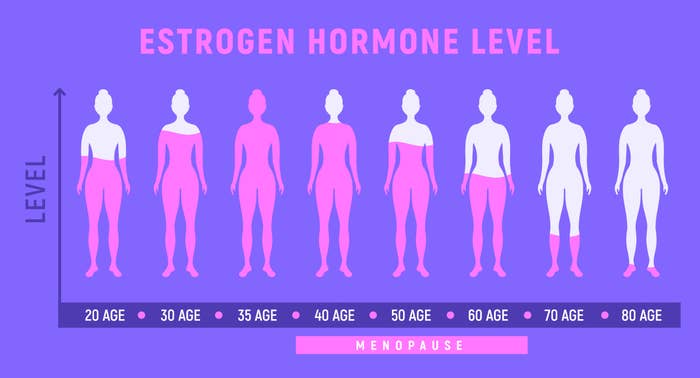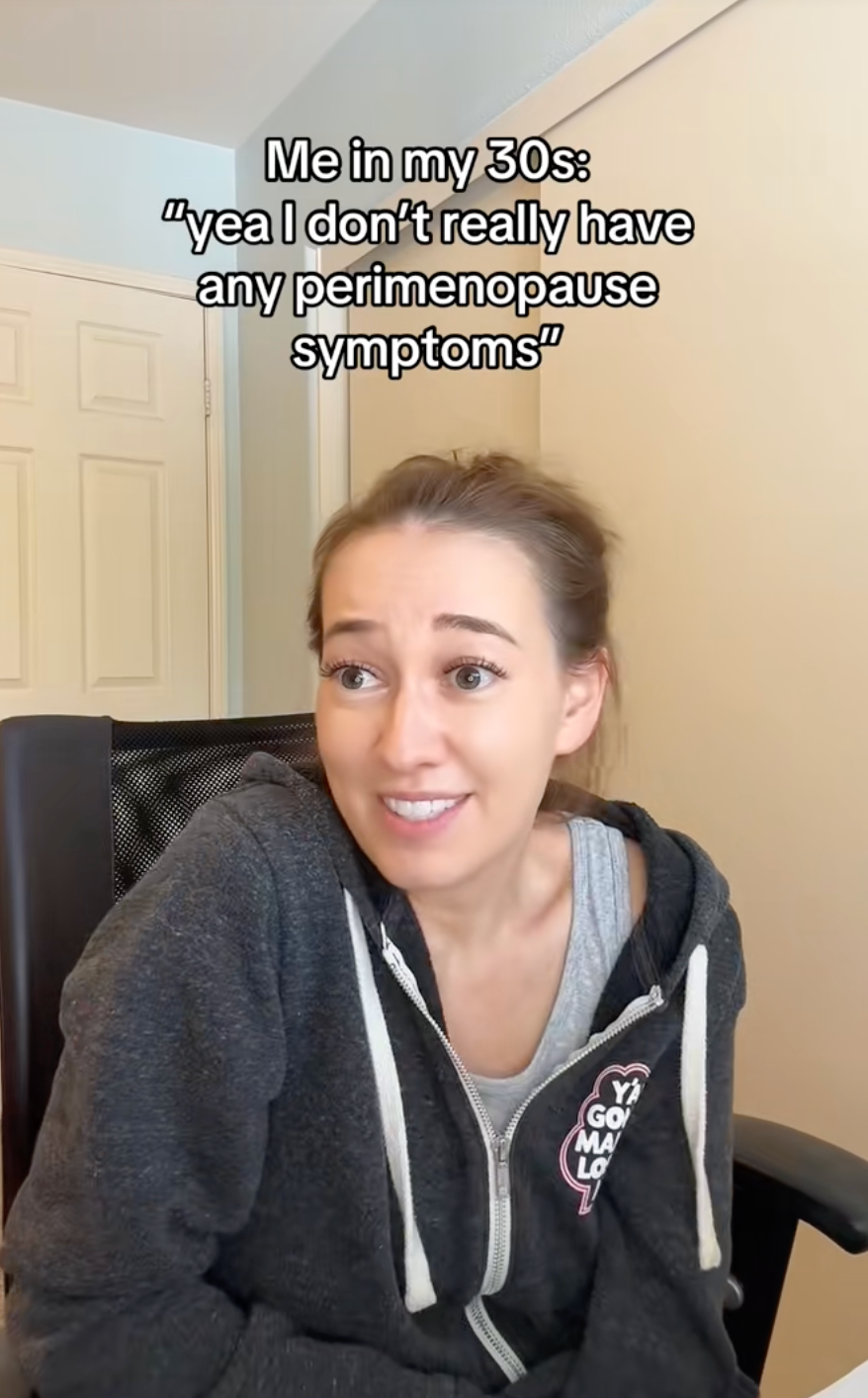" I was totally blindsided . "
If you’re not familiar, menopause happens when a person’s estrogen levels decline, and their ovaries stop producing eggs. In short,the person’s periods stop, and they can no longer get pregnant.
Menopausetypically happens when a person is between 40 and 50 years old, but this can vary from person to person. That being said, before someone enters menopause, they go through a transitional period called perimenopause.It signals a drop in estrogen from the ovaries, leading to irregular menstrual cycles and several physical and emotional shifts.
And becausemenopause is often stigmatized and not openly talked about, people are even more uneducated about what to expect during perimenopause.
So, many TikTok users who have been through it aresharing symptoms they experienced, like TikTokerChrissy Allenhas gone viral for some of herperimenopause videos.
She has racked up millions of views,especially in one of her videoswhere she showed herself realizing itchy ears were a sign of perimenopause.
Itchy ears seem to be the most common symptom amongst TikTokers who have experienced it and seen the video:
People have also shared that they feel like bugs are crawling on them:
Others smell cigarettes when no one is smoking:
Sleep seems to be also affected:
There are a lot of symptoms that people really had no idea about:
But, thankfully, TikTok is helping connect people to change that:
BuzzFeed spoke toDr. Louise Fitzgerald, who said menopausal symptoms affect approximately75–80% of people.Perimenopause may affect fewer, but it is estimated thataround 1.1 billion women worldwide may be currently experiencing it.
And it is important to note that perimenopause is part of the three phases of themenopausal transition: perimenopause, menopause itself, and postmenopause. This transitional period typically lasts seven years, but can take up to 14!
Fitzgerald saidhot flashes are one of the most commonly reported symptomsof perimenopause and menopause. “A hot flush or flash is caused by hormonal fluctuations, particularly changes in estrogen levels. During perimenopause, estrogen levels fluctuate much like a rollercoaster, which can lead to temperature dysregulation and trigger hot flashes. After menopause, when there is a steep decline in estrogen levels, hot flashes often continue but may become less frequent over time,” she explained.
Irregular menses and nighttime lather are othercommon symptoms of perimenopauseand menopause . " blistering blush are an case of vasomotor symptoms . Other symptoms let in brain fog , anxiety , feeling overwhelmed , joint aches and pains , muscle pain , dry heart or pilus , tinnitus , vaginal dryness , rescues libido , weightiness increase , reduced vigor levels , " Fitzgerald said , adding that people may experience all , some , or none of these symptoms .
In addition to the lesser-known symptoms shared by the TikTokers above, people may also experienceburning mouth syndrome, nipple discharge, and hormonal acne. Fitzgerald said Hormone Replacement Therapy (HRT) is one of the most effective options when it comes to helping stabilize estrogen levels to diminish symptoms like hot flashes. “However, some people cannot have hormones or do not want to have hormones,” she then emphasized that you should always consult your physician to figure out what may be the best option for you.
Fitzgerald has provided some resources if you want to further educate yourself :
Women ’s Health Concern Fact Sheet
Menopause Symptom Checker

General Menopause Information
Her Menopause Website
Her Women ’s Health Podcast(Specificallythis episodeandthis sequence . )

Naomi Wattsis also a big advocate for menopause education. Back in 2023,Today with Hoda & Jenna(now calledJenna & Friends) hada special segment centered around women’s health called “Own Your Health.“In the episode, Naomi Watts shared how she discovered she was going into early menopause in her 30s.











